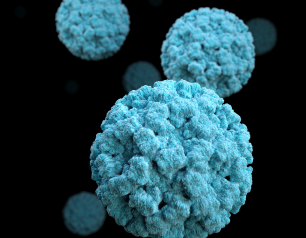123 Results
Championing Asthma Research to Reduce the Burden of Disease
Today on World Asthma Day, NIAID reaffirms its commitment to reducing illness from this chronic lung syndrome and improving quality of life for people with asthma through research that informs the development of new asthma prevention and treatment strategies. NIAID-funded studies recently uncovered new risk factors for asthma and a previously unreported cause of frequent, severe asthma attacks. Other studies shed light on poorly understood causes of airway inflammation, as well as on genes and proteins involved in regulating asthma severity.
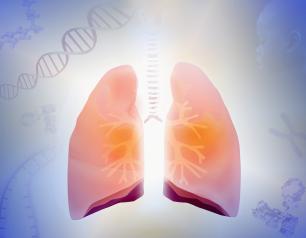
Making an Impact: Results from an NIAID-funded Study of Hospitalized COVID-19 Patients
Why do some people hospitalized with COVID-19 succumb, while others—with apparently similar disease severity at the time of hospitalization—survive? Among older individuals, are there particular immune responses to SARS-CoV-2 virus infection that set the stage for the increased risk of severe COVID-19? New publications from the NIAID-funded IMPACC study help provide answers.
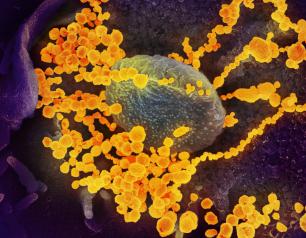
New Tool Identifies Aedes Mosquito Exposure in People
Scientists at NIAID developed a new tool to help identify geographic hot spots for Aedes mosquitoes, a type of mosquito that can spread diseases such as dengue, Zika and chikungunya. The tool uses a marker from blood serum to identify people bitten by Aedes mosquitoes. Monitoring for this marker in blood samples could help find sites where disease-carrying mosquitoes live, allowing for targeted interventions against dengue and other diseases.
NIAID Commemorates World Malaria Day 2024
Malaria, the fifth most deadly infectious disease, remains a public health priority. On April 25, World Malaria Day, the National Institute of Allergy and Infectious Diseases (NIAID), part of the National Institutes of Health (NIH), joins with the global health community in reaffirming our commitment to ending this ancient parasitic disease. This year’s theme, “Accelerating the fight against...
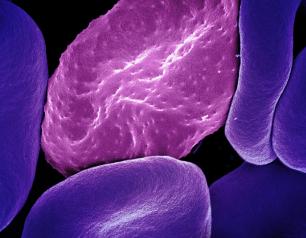
The HIV Field Needs Early-Stage Investigators (VIDEO)
by Jeanne Marrazzo, M.D., M.P.H., NIAID Director
The HIV research community is led by scientists with deep personal commitments to improving the lives of people with and affected by HIV. Our collective decades of work have generated HIV testing, prevention and treatment options beyond what we could have imagined in the 1980s. Those advances enable NIAID to explore new frontiers: expanding HIV prevention and treatment modalities, increasing understanding of the interplay between HIV and other infectious and non-communicable diseases, optimizing choice and convenience, and building on the ever-growing knowledge base that we need to develop a preventive vaccine and cure. The next generation of leaders will bring these concepts to fruition, and we need to welcome and support them into the complex and competitive field of HIV science.
Sexually Transmitted Infections—A Closer Look at NIAID Research
Sexually transmitted infections (STIs) are caused by bacteria, viruses, or parasites. NIAID supports research across the spectrum from basic to clinical science to develop effective diagnostic, preventive and therapeutic approaches to STIs in alignment with the National STI Strategic Plan. In recognition of National STI Awareness Week, NIAID shares a snapshot of new projects and recent scientific advances in STI research.

NIH Ending the HIV Epidemic Projects Bridge Gaps Between HIV Research and Public Health Practice (VIDEO)
The National Institutes of Health recently issued $26M in awards to HIV research institutions in its fifth year supporting implementation science under the Ending the HIV Epidemic in the U.S. initiative. These awards are the latest investments in a program that is rapidly and rigorously generating evidence to inform the unified domestic HIV response by agencies in the Department of Health and Human Services.
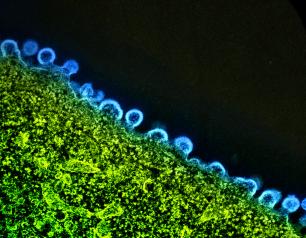
NIAID Renews Consortium for Food Allergy Research in Its 19th Year
NIAID has awarded 11 new cooperative agreements to support the Consortium for Food Allergy Research, or CoFAR, in the latest renewal of the program since its establishment 19 years ago. The institute expects to fund the awards with more than $11 million annually for seven years, contingent upon the availability of funds.
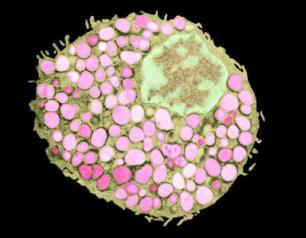
Experimental Ebola Vaccines Found Safe and Capable of Producing Immune Responses in Healthy Adults
Ebola viruses cause devastating disease in people, resulting in severe and often fatal hemorrhagic fever called Ebola virus disease. Of the four species of Ebola viruses that cause disease in people, Zaire ebolavirus (EBOV) and Sudan ebolavirus (SUDV) have caused more than 30 known outbreaks in the last century, killing more than half of those with the disease. Scientists at NIAID’s Vaccine Research Center (VRC) developed novel vaccines to combat these viruses, which were advanced to clinical trials in response to the 2014-2016 Ebola epidemic in the West African countries of Guinea, Liberia, and Sierra Leone. In two phase 1/1b trials conducted in the United States and Uganda, the researchers evaluated combinations of the experimental vaccines against Ebola disease in healthy adults, finding them safe, tolerable, and capable of producing immune responses. Comparisons between the different vaccine regimens revealed important data on how the vaccines could be administered in routine and outbreak settings. The results of the trials were published last week in npj Vaccines.
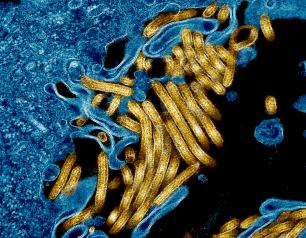
Wanted: Your Input for the NIAID 2025-2029 Strategic Plan
By Jeanne Marrazzo, M.D., M.P.H., NIAID Director
Now that I have spent the last six months learning about NIAID and getting to know the people and history that make NIAID special, I am even more excited and energized to plan for our next several years. In the years since NIAID prepared its last strategic plan, the institute—like the scientific community and the world at large—witnessed many changes...

Stem Cell Changes Rejuvenate Immune System in Aged Mice
Using a mouse model of human aging and disease, NIAID scientists and Stanford University colleagues have shown that immune systems of aged laboratory mice can be made more youthful and effective at fighting disease by depleting a subset of haematopoietic stem cells.
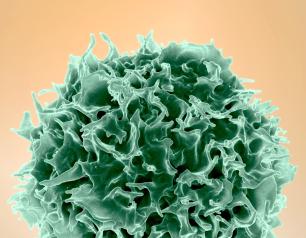
A Change in Drug Regimen is Associated with Temporary Increases in Dormant HIV
Switching to an antiretroviral therapy (ART) regimen containing the drug dolutegravir was associated with a significant temporary increase in reservoirs of latent HIV, according to a new analysis from a study in Uganda. HIV reservoirs are cells where HIV lies dormant and cannot be reached by the immune system or ART. They are central to HIV’s persistence, preventing current treatments from clearing the virus from the body.
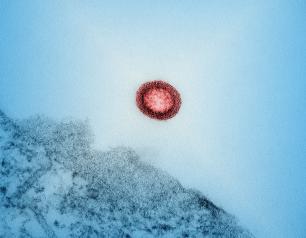
HIV Treatment Research and Key Takeaways: Dr. Dieffenbach’s Final Update from CROI 2024 (VIDEO)
On March 6 as the 2024 Conference on Retroviruses and Opportunistic Infections (CROI) was winding down, HIV.gov spoke with Carl Dieffenbach, Ph.D., director of NIAID's Division of AIDS, about highlights of long-acting HIV treatment research discussed at the conference. He spoke with Brian Minalga, M.S.W., deputy director of the NIH-supported Office of HIV/AIDS Network Coordination. Watch their conversation.

Centering Women and Girls’ Health in HIV Research
Women account for approximately 23 percent of people with HIV in the United States. In recent years, women aged 25 to 34 comprised the highest number of new diagnoses. Furthermore, Black women, transgender women, and women aged 13 through 24 are more likely to experience health disparities associated with lack of access to HIV testing, treatment, and prevention resources. This weekend marked National Women and Girls HIV/AIDS Awareness Day. NIAID supports research programs that focus on HIV and other health outcomes in women to inform and enable more targeted and effective HIV prevention, care, and treatment.
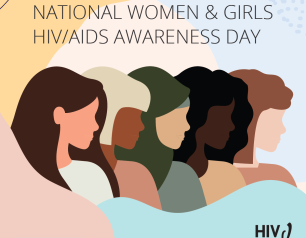
Promising Outcomes with HIV Treatment Started Promptly After Birth: Deborah Persaud Presents at CROI 2024 (VIDEO)
On the final day of the 2024 Conference on Retroviruses and Opportunistic Infections (CROI), HIV.gov spoke with Deborah Persaud, M.D., professor of Pediatrics at the Johns Hopkins University School of Medicine and director of the Division of Pediatric Infectious Diseases at Johns Hopkins Children's Center, who reported findings from a study about whether very early initiation of antiretroviral therapy (ART) may limit the establishment of HIV reservoirs in newborns, potentially enabling ART-free remission. Dr. Persaud spoke with Catey Laube of NIAID's Office of Communications and Government Relations. Watch their conversation.

Addressing Liver and Cardiovascular Disease among People with HIV and HIV Prevention During Pregnancy: Dr. Dieffenbach’s Second Update from CROI 2024 (VIDEO)
On Tuesday at the 2024 Conference on Retroviruses and Opportunistic Infections (CROI), HIV.gov spoke with Carl Dieffenbach, Ph.D., director of NIAID’s Division of AIDS, about research on common health complications of HIV and the safety of an HIV prevention tool during pregnancy. He spoke with Miss Molly Moon, M.S.W., Deputy Director of the NIH-supported Office of HIV/AIDS Network Coordination. Watch their conversation.

Doxy-PEP, HIV Vaccines and Community-Engaged Research: Discussions with Carl Dieffenbach and LaRon Nelson at CROI 2024 (VIDEO)
During the first full day of presentations at the 2024 Conference on Retroviruses and Opportunistic Infections, HIV.gov spoke with Carl Dieffenbach, Ph.D., director of NIAID’s Division of AIDS, and LaRon Nelson, Ph.D., R.N., F.N.P., F.N.A.P., F.N.Y.A.M., F.A.A., professor and associate dean at the Yale School of Nursing. They discussed Doxy-PEP for STI prevention, HIV vaccines, community engagement in research, and more. Watch their discussions.

NIAID’s Dr. Jeanne Marrazzo Previews CROI 2024 (VIDEO)
HIV.gov opened their coverage of the 2024 Conference on Retroviruses and Opportunistic Infections (CROI) today with a conversation with NIAID Director Jeanne Marrazzo, M.D., M.P.H. She spoke with Miguel Gomez, director of HIV.gov about what she’s looking forward to hearing about at the conference, how the studies presented at research conferences ultimately get translated into clinical practice or HIV prevention or treatment services, and the important roles of early-career investigators. Watch their conversation with Dr. Marrazzo.

Toward a Deeper Understanding of Effective Oral HIV Pre-Exposure Prophylaxis Use in Cisgender Women
Pivotal studies supported by NIAID demonstrated that oral pre-exposure prophylaxis (PrEP) reduces an individual’s likelihood of acquiring HIV through sex by up to 99% when taken as prescribed. Research has revealed important differences in individual and population-group preferences in oral PrEP use, particularly that cisgender women participating in studies often did not take oral PrEP as prescribed—and the intervention’s effectiveness declined when doses were taken less frequently. Jeanne Marrazzo, M.D., M.P.H. and colleagues conducted a pooled analysis of data from post-marketing demonstration projects to to characterize the relationship between oral PrEP use and its efficacy among cisgender women.
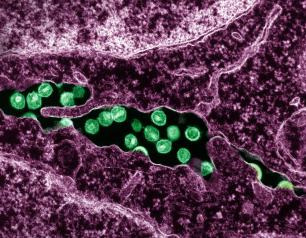
New Guidelines for Use of Statins by People with HIV to Prevent Cardiovascular Events
The Department of Health and Human Services Guidelines Panel for the Use of Antiretroviral Agents in Adults and Adolescents with HIV (the Panel) has developed recommendations for the use of statin therapy in people with HIV, in collaboration with representatives from the American College of Cardiology, the American Heart Association, and the HIV Medicine Association.
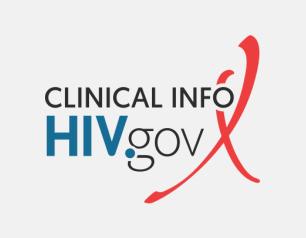
NIAID Team Recognized for Excellence in Technology Transfer
A multi-disciplinary NIAID team has received an Excellence in Technology Transfer Award for work that led to the treatment of the rare disease known as PASLI/APDS. The Federal Laboratory Consortium for Technology Transfer (FLC) award honors outstanding work by federal laboratories that collaborate with industry, academia or other labs to bring technologies from the bench to the marketplace.
In 2013...

NIAID and Cuban Scientists Gather to Discuss Global Health Challenges
Recent disease outbreaks in the Americas led U.S. and Cuban scientists to hold a meeting Feb. 14-16 on Addressing Global Health Challenges Through Scientific Innovation and Biomedical Research.
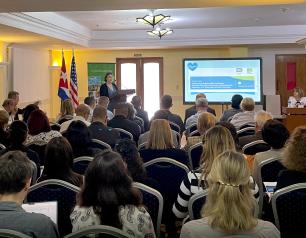
Novel CMV Vaccine Generates Stronger Response in Key Immune Cells Than Previous Candidate
A messenger RNA (mRNA) vaccine designed to prevent human cytomegalovirus (CMV) elicited long-lasting CMV-specific responses from several types of immune cells, outperforming a previous vaccine concept in multiple measures in a NIAID-supported laboratory study. The findings were published in the Journal of Infectious Diseases.
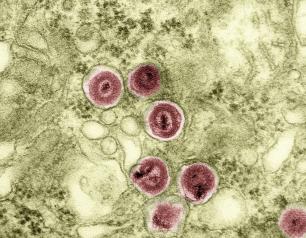
Working Together to End HIV in Black Communities
Health inequities and disparities disproportionately affect Black people and other historically marginalized groups at above average rates. NIAID highlights ongoing efforts to reduce the burden of HIV among Black Americans while increasing the representation of Black communities and researchers in HIV science.
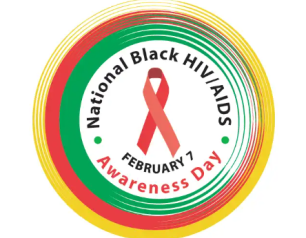
New Model for Norovirus Offers Promising Path Towards Countermeasure Development
Norovirus, a highly infectious virus that is the leading cause of diarrhea and vomiting in the U.S., has no approved therapeutics or vaccines to prevent its miserable effects. This is partly due to a lack of reliable animal models to study norovirus infection and predict how effective interventions would be in people.
